|
|


Cranberries were once an important medicine for native
Americans. They treated a variety of illnesses, including bladder
infections, with cranberry preparations.
Today cranberries, the most American of all fruits, continue to be a
superior source of nutrition and vitamins. North American women have
been drinking cranberry juice cocktail for years as a traditional
remedy for bladder infections and to maintain urinary tract health.
Recent research has also indicated that cranberries are an excellent
source of "antioxidants" -- natural plant products that may protect
against cancer, heart disease and other diseases.
Nutritionists and many in the medical community believe there is a
clear association between a diet high in fruits and vegetables and low
risk of chronic disease. As a fruit, cranberries are a good choice for
the health-conscious consumer. As a functional food powerhouse, packed
full of antioxidants and other natural compounds, they promote health
and wellness.
Recently, attention has turned to the relationship between cranberry
consumption and cardiovascular health. Preliminary results show that
drinking cranberry juice is a heart-healthy activity that's delicious
too!
Researchers believe that polyphenol compounds called flavonoids,
associated with foods such as red wine, are responsible for reduction
in cardiovascular disease. Flavonoids act by inhibiting blood clotting,
promoting vasodilation (increased interior blood vessel diameter, which
improves blood flow and reduces blood pressure), and protecting
oxidation of cholesterol in the bloodstream (thus, reducing
atherosclerosis, or clogging of the arteries).
According to some in the medical community, cranberries contain high
levels of flavonoids and research on the effect of cranberry juice
consumption on cardiovascular health continues.
Studies show that raw cranberry extract has potent antioxidant
properties in lab tests with low density lipoproteins. Research
demonstrates that over-the-counter bottled cranberry juices also
contain potent antioxidants. Cranberry juice has also been shown to
increase interior blood vessel diameter in animals, suggesting that
cranberry juice may have a similar effect on blood flow in humans.
Overall, studies have demonstrated that cranberry juice is equivalent
to red wine with respect to polyphenol content, antioxidant activity,
and vasodilator activity. Although preliminary, the results show that
cranberry juice should definitely be a part of a heart-healthy diet.
Cranberries also contains a number of plant chemicals that may play a
role in preventing certain types of cancers. These plant chemicals are
called flavonoids and include anthocyanins (which give cranberry its
characteristically deep red color), proanthocyanidins and flavonols.
In published studies, cranberries were shown to have the potential to
inhibit the initiation and early stages of cancer as evaluated by
laboratory screening tests. The researchers theorize that certain
flavonoids identified in cranberry juice were responsible for the
activity. These compounds inhibited epidermal tumor growth in mice in
previous studies.
More recently, researchers have demonstrated that mice injected with
human breast cancer cells showed significantly lower incidence of tumor
development when fed cranberry components. The study also revealed that
cranberry consumption delayed tumor development and reduced the spread
of tumors to the lungs and lymph system.
Cranberry is also a rich source of the flavonoid quercetin. Quercetin
has been shown to effectively inhibit the development of both breast
and colon cancers.
If It's
Not From The Forest, It's Not Wild!
Mike Poulin,
James Bay Wild Fruit
|

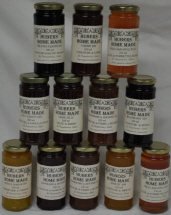
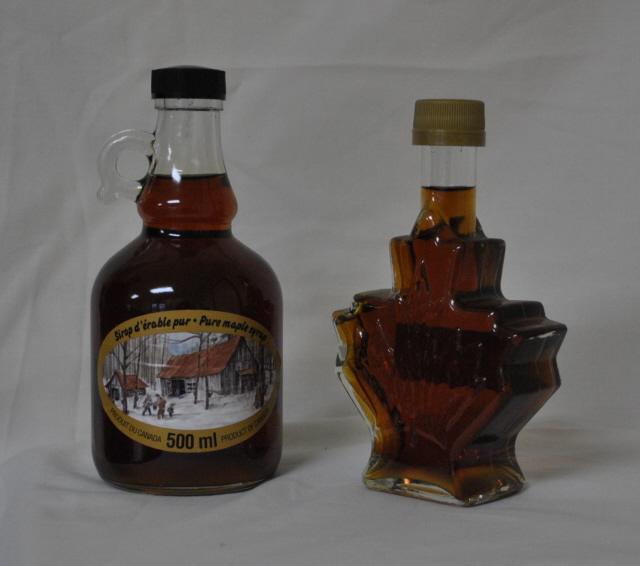

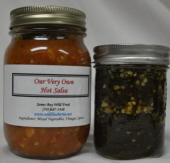
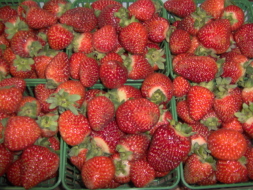
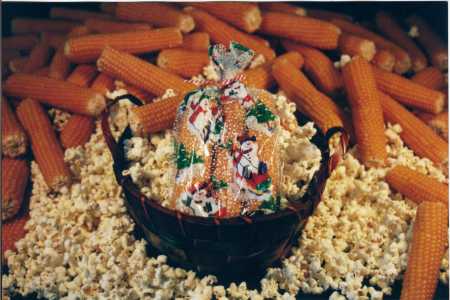
|